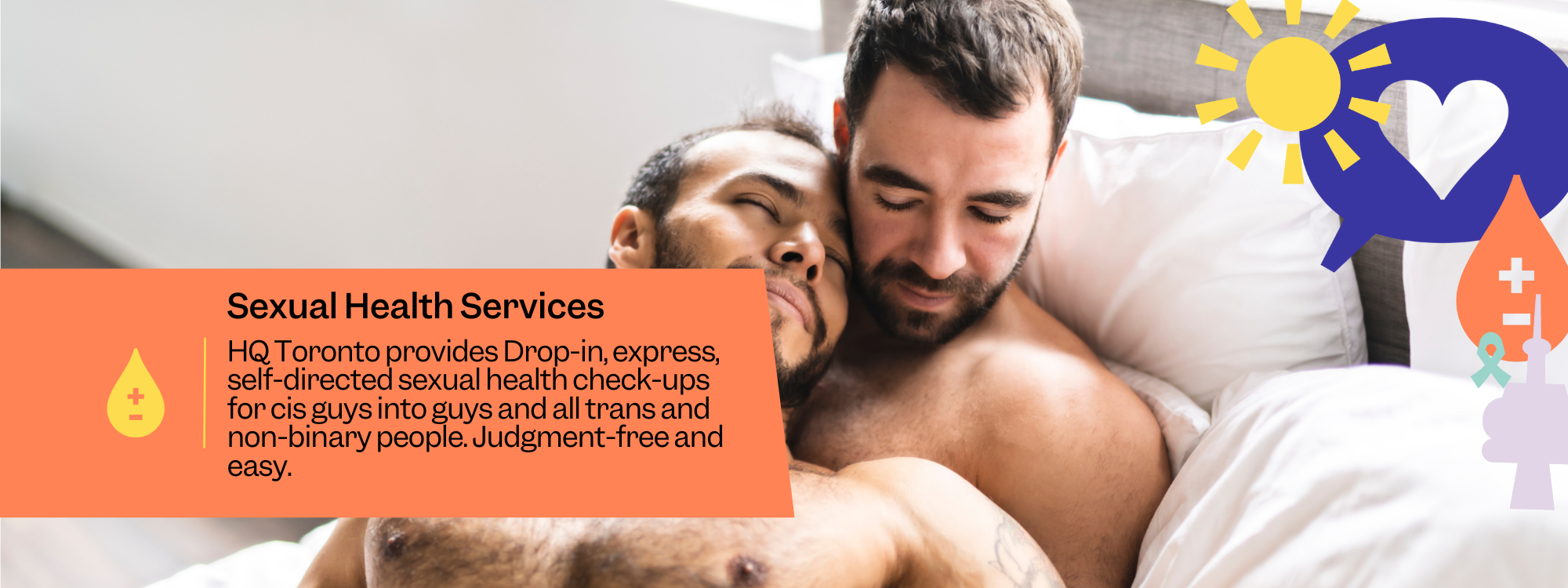
HQ has a new vision for STBBI and HIV testing in Toronto
Connect with services online or walk-in and register at an automated kiosk in HQ’s reception area. Follow the prompts on the kiosk screen and pick up supplies before heading to the first available testing room where you can collect your own swab (rectal, throat) and urine samples. Gonorrhea, syphilis, and chlamydia testing will all be available. During your visit, you can share any mental health or other health challenges or access on-site counseling.
How to get a Test

Testing at HQ is confidential, convenient, and quick. HQ utilizes an express HIV and sexually transmitted and blood-borne infection (STBBI) testing system, meaning you can get tested and get your results within hours. HIV tests are done through a blood draw, and results are available same day or next day.
STBBI testing is conducted through self-collected swabs and urine tests. Healthcare providers will be available to provide in-person assessments if you are experiencing symptoms of an STBBI. To get a test, come for a walk-in at HQ.
How often should I get tested?
It is a good idea to get tested for STBBIs at least once a year. Scheduling routine STBBI testing is a great way to take care of your sexual health. If you have multiple sexual partners, it is a good idea to get tested every three to six months, or before each new sexual partner. Your testing routine will depend on your sexual activity.
Walk In
HQ welcomes cis guys into guys and two-spirit, transgender and non-binary folks in Toronto, at any time that works for them.
Walk-in express testing is available at HQ from 12:00 PM - 7:30 PM Monday-Thursday and Fridays from 12:00 PM-5:30pm.
Come in, get tested, and get your results quickly. No questions. No judgement.
Getting Treatment
If you test positive for a sexually transmitted or blood-borne infection (STBBI), it is important to start treatment as soon as possible. The earlier treatment is started, the better the health outcomes and the less likely that the STBBI will be transmitted to other people. Many STBBIs can be cured with antibiotic treatment quickly.
If you test positive for an STBBI you will be asked to return to the clinic to speak with a provider who will treatment options with you. Results from STBBIs are available the same day as testing. If you are experiencing symptoms of an STBBI, a healthcare provider at HQ will provide an in-person assessment and may provide same-day treatment as needed.